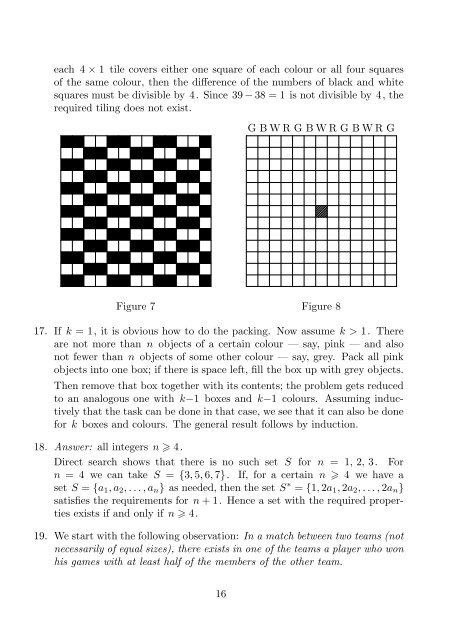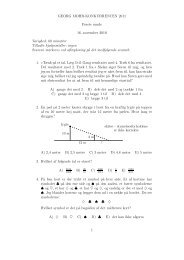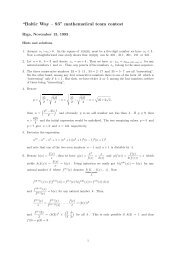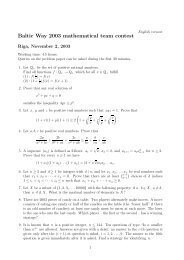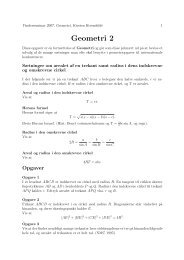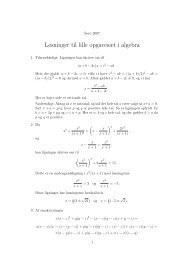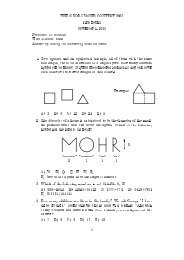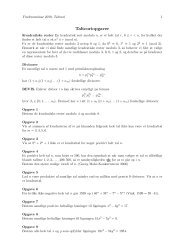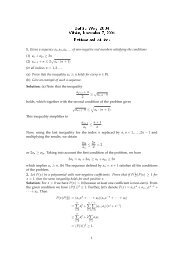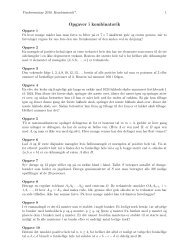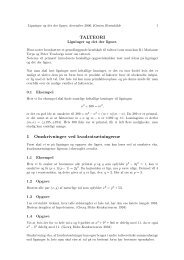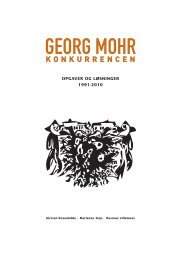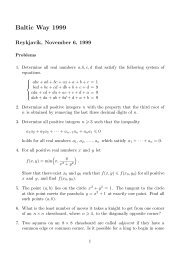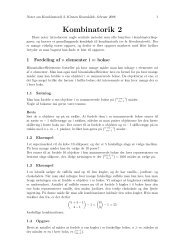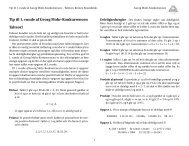Create successful ePaper yourself
Turn your PDF publications into a flip-book with our unique Google optimized e-Paper software.
each 4 × 1 tile covers either one square of each colour or all four squares<br />
of the same colour, then the difference of the numbers of black and white<br />
squares must be divisible by 4. Since 39 − 38 = 1 is not divisible by 4, the<br />
required tiling does not exist.<br />
Figure 7<br />
G B W R G B W R G B W R G<br />
Figure 8<br />
17. If k = 1, it is obvious how to do the packing. Now assume k > 1. There<br />
are not more than n objects of a certain colour — say, pink — and also<br />
not fewer than n objects of some other colour — say, grey. Pack all pink<br />
objects into one box; if there is space left, fill the box up with grey objects.<br />
Then remove that box together with its contents; the problem gets reduced<br />
to an analogous one with k−1 boxes and k−1 colours. Assuming inductively<br />
that the task can be done in that case, we see that it can also be done<br />
for k boxes and colours. The general result follows by induction.<br />
18. Answer: all integers n � 4.<br />
Direct search shows that there is no such set S for n = 1, 2, 3. For<br />
n = 4 we can take S = {3, 5, 6, 7}. If, for a certain n � 4 we have a<br />
set S = {a1, a2, . . . , an} as needed, then the set S ∗ = {1, 2a1, 2a2, . . . , 2an}<br />
satisfies the requirements for n + 1. Hence a set with the required properties<br />
exists if and only if n � 4.<br />
19. We start with the following observation: In a match between two teams (not<br />
necessarily of equal sizes), there exists in one of the teams a player who won<br />
his games with at least half of the members of the other team.<br />
16


